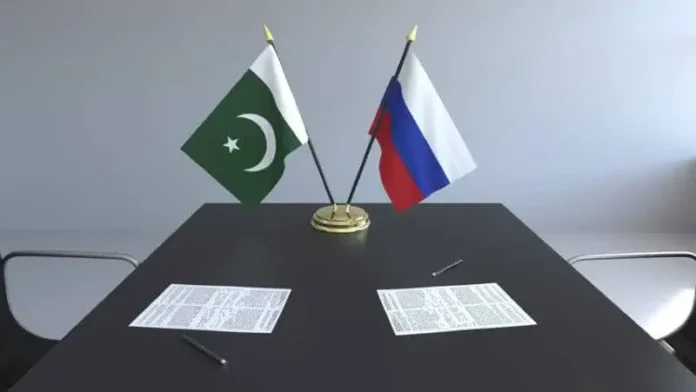Pakistan is preparing to hold high-level discussions with Russia next week regarding trade and investment opportunities in major infrastructure projects. These discussions will take place over three days, under the Pakistan-Russia Intergovernmental Commission (IGC), as the ninth meeting held in almost two years. Power Minister Sardar Awais Leghari will lead the delegation, replacing Minister for Economic Affairs Ahad Khan Cheema.
These trade topics cover a whole range of economic, commercial, and trade concerns, representative of the interest of both countries towards diving their cooperation further. These talks come shortly after a week of Belarus president, Alexander Lukashenko‘s visit to Islamabad, during which several agreements were signed.
Also Read: Ishaq Dar Highlights cultural diplomacy at PFOWA charity bazaar
Although obstacles persist from international sanctions on Moscow, Pakistan will create a bridge over that stretch and continue to build high diplomacy and economic relations with Russia. One major hurdle, however, is devising an alternative payment system since Russia’s exit from SWIFT, complicating trade between both nations because local banks are hesitant to engage with Moscow at the risk of Western sanctions.
However, Pakistan is hopeful about getting investment from Russia in the big infrastructure projects. The government wants to woo Russian funds for Sukkur-Hyderabad Motorway (M-6) and Gwadar-Hoshab-Awaran-Khuzdar Motorway (M-8). Other important projects for Pakistan include the Kharian-Rawalpindi motorway, upgrading the Quetta-Taftan railway line, and may include the Diamer-Bhasha Dam. It is also expected that Pakistan will receive Russian support for the long-pending Pak Stream Gas Pipeline (PSGP), which has encountered colossal problems due to US sanctions.
Russia offers discounted crude oil and liquefied natural gas for Pakistan, and energy cooperation will extend to offshore oil and gas exploration. Besides this, the countries are also expected to discuss deepening bilateral trade, including possible exports of halal meat and possible joint ventures in such areas as organic fertilizer production, electric vehicles, solar energy, and mobile devices-.
